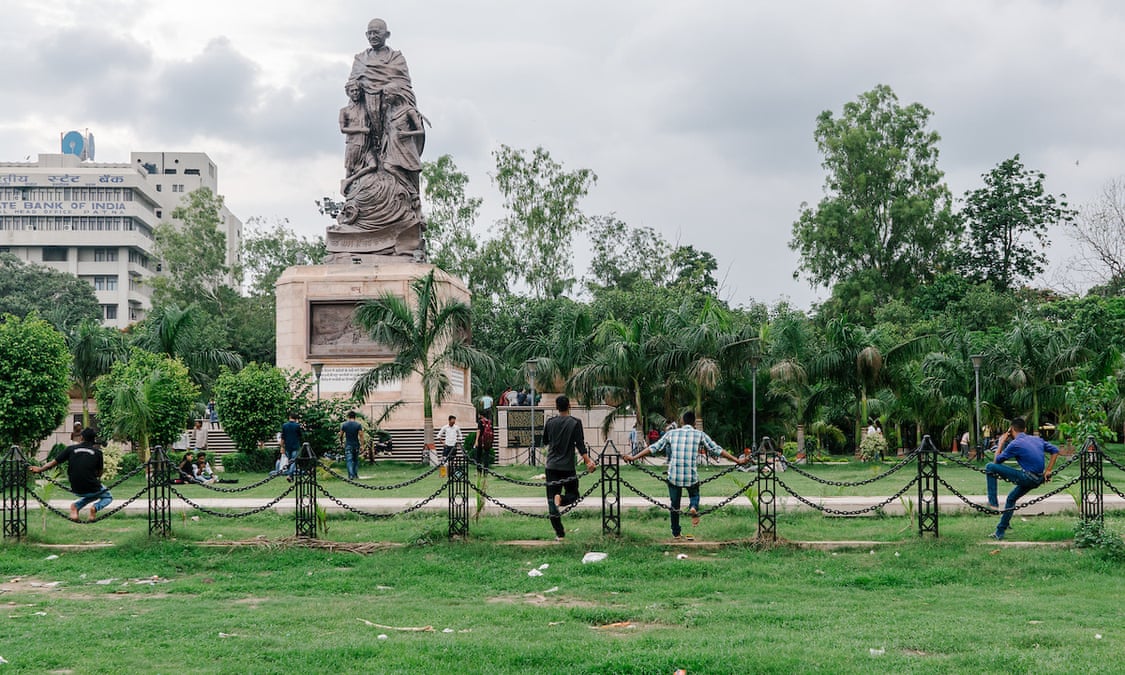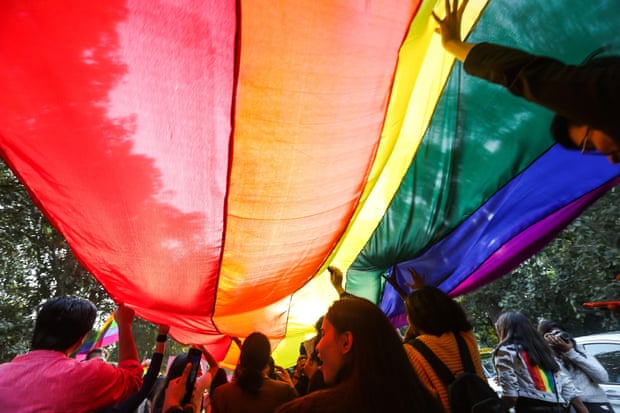- UID
- 20
- Online time
- Hours
- Posts
- Reg time
- 24-8-2017
- Last login
- 1-1-1970
|
|
━━━━━━━━━━━━━━━━━
A landmark ruling legalised gay sex in the country in 2018, yet the LGBT community still face stigma and violence.

Social acceptance of the LGBT community is lagging far behind the change in law. Above, Gandhi Maidan park, in Patna, Bihar, a gathering place for gay men. Photograph: Jake Naughton
▼ When India’s supreme court announced it was legalising gay sex, people hugged in twos and threes on the lawns outside the Delhi courthouse. They draped themselves in rainbow flags in Bangalore and released balloons into the sky. In Mumbai’s nightclubs, they danced all night.
In Patna, the dusty capital of the east Indian state of Bihar, Roshni did nothing. “We felt good when people were marching in Delhi and Mumbai,” she says. “Everyone wanted to follow [them], but then we feared what other people would think – how they would react.”
Six months ago, a landmark judgment legalised the sex lives of an estimated 104 million Indians. A law against “unnatural sex” enshrined by the colonial British government (and defended by successive Indian ones) was unanimously ruled to no longer prohibit homosexual acts. The reverberations of the decision – on sheer numbers, perhaps the largest single act of gay liberation ever – are still rippling across a vast, diverse and conservative country.
Rumblings can be felt in Patna, more than 1,000km from Delhi. “People are happy, but in their cocoon,” says Aditya Sagar, the teenage host of a youth issues programme on Patna radio.
Many of his LGBT friends greeted the news of the supreme court’s decision with carefully composed Facebook comments. “They wrote, ‘Congratulations to my homosexual friends’. Or they reposted what national Indian celebrities had written about it,” he says. “They feel like they’ll be shunned if they come out here.”

Supporters and members of the LGBT community take part in India’s largest Queer Pride Parade in New Delhi, in November 2018. Photograph: Sauvik Acharyya/Zuma/Alamy
Among Indians, Bihar still conjures images of lawlessness and poverty. Though the state’s economy has rallied in the past 15 years, its poverty and school dropout rates are still among India’s highest. Even in its noisy, congested main city of Patna, people still hold fast to traditional values and family honour as pillars in a society where little else can be relied on.
“The ideology of marrying a woman and having children here is deeply rooted,” says Shubhankar Mondal, a medical student and one of the few openly gay people at his college in the city. (▪ ▪ ▪)
► Please, continue reading this article here: Source |
|